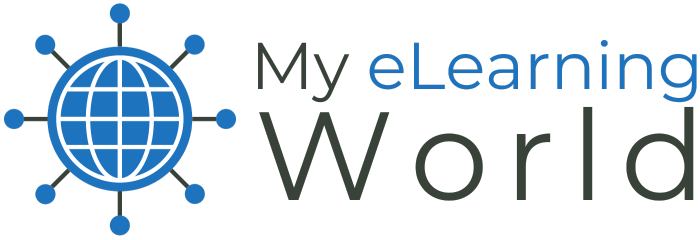Some 20 years ago, e-Learning was a largely experimental area dealing with very few, mainly technical, subjects. Since then the industry has flourished into a new lifestyle, a fresh outlook on knowledge, technology and communication. Educators worldwide use e-Learning tools and principles to share their courses with an interested audience. Almost any modern educational institution in the 2010s has already employed e-Learning in its daily practice or would like to do so, regardless of budgetary or bureaucratic considerations. Sounds too good to be true, doesn’t it?
Is this, by any means, a sign of disruption of the traditional school empire? E-Learning seems poised to make a large impact on this pillar of modern society, the fundamental structure for an individual’s development from early childhood onwards.
How does e-Learning fit this paradigm? Can a virtual course replace a traditional class for good? Should it? Let’s see what advanced learners and teachers have to say on the subject.
“It’s all ambiguous…”
Assuming all learners have equal access to technology and a comfortable working environment, e-Learning seems to be the soft option. However, the educational community raises at least two important concerns:
- Motivation: Students need challenges and recognition for their achievements. Instructors are key for inspiring motivation in learners, be it a job or a college course.
- Feedback: Frequent feedback from the instructor keeps up the learning process. Effective assessment and result evaluation is part of the game, and another important factor is the ability to analyze your personal performance.
To sum up, most experts maintain that direct instructor-learner interaction remains crucial in the learning process. Indeed, self-driven e-Learning could not substitute schools, yet specific features of a traditional classroom rendered online would greatly enrich the learning process. Besides, it’s worth mentioning that both motivation and feedback features have been factored in and elaborated on by all major learning management systems, so technology lets you get as involved as possible in the absence of direct interaction.
“Not yet”
Online learning has obvious advantages: convenient, free or cheap, personal experience with no distractions and the chance to go at your own pace. However, it also has structural and fundamental disadvantages.
One of such structural issues is the lack of a tutor you may directly address with questions along the way. Another is the lack of classmates, which precludes discussion and open communication among peers. Last but not least, sticking to a computer monitor or tablet all night long might not be that great after all.
Changing gears, another concern is how can one verify your understanding? Learning management systems have test and quiz modules handy, however, outside of a structured knowledge center you’re pretty much facing your own unresolved doubts.
Many respondents think these are the roadblocks against replacing the school day with online learning. In defense of e-Learning, LMS technology now covers all basic communication needs during the training process (feedback, assessment, grading, internal mail, peer groups, etc.).
“Let’s get down to earth…”
Let’s admit it: these days, most students attend college with the pragmatic goal of finding a better job. Versus college diplomas, uncertified self-acquired skills and knowledge would not be of much help in the eyes of an average employer.
This point is hard to dispute. Assuming the e-Learning or MOOC model does prove sustainable, the question becomes: how do we change the way things work? It’s unlikely we’ll witness a generation of hiring managers with full confidence in MOOC or e-Learning courses in the next couple of decades.
In conclusion
It was back in 1971 when Ivan Illich published Deschooling Society, a pioneering critical discourse on traditional education. The book undermined institutionalized education as inefficient and advocated self-directed education supported by social relations.
Now that 45 years have passed, this is still a pressing matter and a challenge to the educational community. Apparently, the traditional school has to evolve to meet modern requirements. Education is a highly conservative paradigm that avoids abrupt methodology shifts and revolutions of any kind. Otherwise, it would fall apart as one of the cementing conventions of modern society.
Online courses, e-Learning, and learning management software are making inroads into this conservative field, but there is one key thing that’s not subject to alteration. Devoid of the human factor and quality face time, e-Learning inevitably boils down to training, leaving pure mentoring or intellectual upbringing aside. In my opinion, this is exactly why online learning will hardly replace traditional school in our lifetime or anytime soon.
Here’s a tiny survey. It will only take a minute, and I’ll be grateful for your feedback!
[democracy id=”6″]
I’d be happy to be proven wrong, though! I need your opinion. Keep me posted and stay tuned for new things e-Learning.


E-Learning is great, nobody’s questioning that. The problem is, who is going to take responsibility for possible failures? MOOC, K12, authoring tool vendors? Traditional school has long-standing traditions and responsible authorities in charge. If something goes wrong with modern education, the professional community reacts accordingly with reform or adjustments. Slowly? Yes, but steadily.
Who will be in the position to correct e-Learning mistakes? Who’s in charge? Education, in my opinion, is an area that needs strong public regulation. Otherwise, twenty years from now, we’ll have incubated another lost generation that knows no benchmarks or common goals.
Thanks for your comment, Adam! I don’t envision e-Learning as a threat to regulated institutionalized education. On the contrary, it’s a helping hand in terms of technology and instructional design. As long as the teacher figure spearheads the learning process, the professional community members with their verified methodologies will remain in the driver’s seat. Will e-Learning reach the same level of consolidation one day? Might happen, but I’m not sure it’s essentially a good thing. I appreciate e-Learning as an enriching alternative rather than a dogma.
If you think the future belongs to cognitive tutoring, then e-Learning can be a good replacement. But I have not heard of any real progress since the 1990s. So we are getting back to the irreplaceable instructor role.
Exactly. Cognitive tutoring is another huge topic. Might be a good topic for a blog post one day.
Virtual teaching is not the perfect substitute to the classroom setting, but there is no better alternative for now. Learning should never stop and technology is the best channel for that. Teachers should make videos and share them with the students through WhatsApp, YouTube or school homework applications. There should also be some provision for clearing the doubts. Besides, the students should utilise this time and learn life skills. In any case, there is an ocean of videos on every topic on YouTube, which the students can access for free.
Wow! Thank you! I constantly wanted to write on my website something like that. Can I implement a portion of your post to my website?